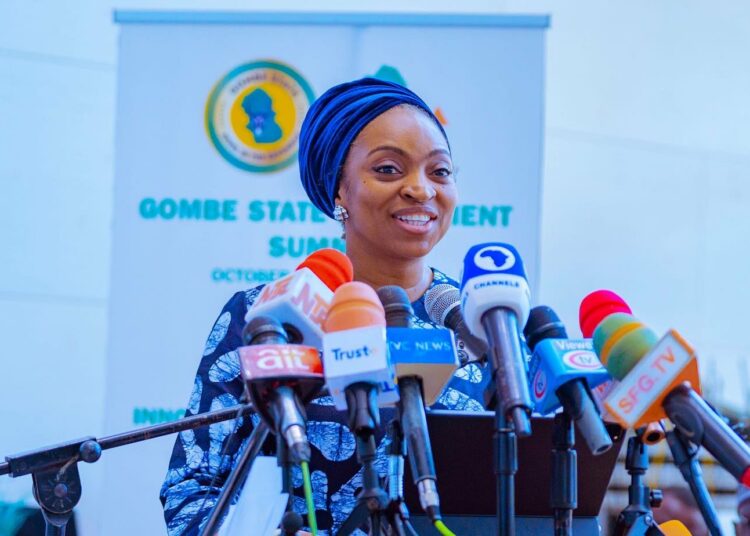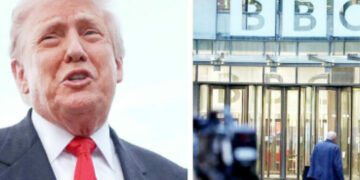Minister of Industry, Trade and Investment, Jumoke Oduwole, has disclosed that Nigeria has begun implementing preferential tariffs for African-made goods and opened a dedicated air cargo export corridor to East Africa as part of efforts to accelerate its commitments under the African Continental Free Trade Area (AfCFTA).
Speaking at the Customs PACT Roundtable at the Presidential Villa in Abuja, Oduwole said Nigeria’s policy reforms under President Bola Tinubu’s administration have placed trade in goods at the heart of the country’s diversification and industrialisation drive, adding that the government was now taking practical steps to deepen intra-African commerce.
The Minister announced that Nigeria had gazetted its Provisional Schedule of Tariff Concessions for trade in goods under AfCFTA earlier this year, which has enabled the rollout of preferential rates for goods made in Africa.
She noted that Nigerian exporters were already benefiting from reciprocal reduced tariffs in other AfCFTA member-states that have equally gazetted their schedules.
Oduwole revealed that in May 2025, Nigeria launched a dedicated Air Cargo Export Corridor to East Africa, created in collaboration with Uganda Airlines, the Nigerian Customs Service (NCS) and supported by UNDP.
The corridor, she said, has reduced export costs by 50–75%, making Nigerian goods more price-competitive and more accessible to African consumers.
She added that work was now underway to establish similar dedicated corridors by sea, road and rail to bolster efficient movement of goods across the continent.
The Minister highlighted several milestones Nigeria has achieved in its AfCFTA implementation effort, including; submission of Nigeria’s Schedule of Specific Commitments for Trade in Services to the ECOWAS Commission for onward transmission to the AU Assembly; publication of Africa’s first-ever 5-year AfCFTA Implementation Review in July 2025 — a data-driven assessment to guide a whole-of-economy approach.
Others include; establishment of the AfCFTA Central Coordination Committee and acceleration of the National Single Window, which she described as the backbone of transparent and efficient trade procedures.
Oduwole said the actions were already yielding economic results. According to her, Nigeria’s overall exports rose by 21% this year, while non-oil exports grew by 24.75% in Q1 2025, driven largely by agriculture, solid minerals and value-added goods.
The Minister said that Nigeria’s manufacturing and industrial sectors were “rising again”, with factories modernising and strengthening value chains.
She noted that manufacturing grew 6.4% in one year, with strong contributions from metal products, textiles and food processing,four new industrial parks have created over 16,000 jobs,six new industrial zones are being developed under the Industrialisation Strategy 2025, targeting textiles, automotive and agro-processing sectors.
Oduwole praised the Nigeria Customs Service for its collaboration, describing the National Single Window and other joint initiatives as central to Nigeria’s trade facilitation agenda.
She emphasised that customs agencies must simplify and digitise procedures — especially for SMEs that make up more than 80% of African businesses.
She called for the digitisation and interoperability of AfCFTA Certificates of Origin, cautioning that documentation should not become hidden costs or barriers for traders.
The Minister also highlighted Nigeria’s growing role in continental digital trade governance. She said that:Nigeria was named Co-Champion of Digital Trade at the AU Summit in February 2025, alongside South Africa and Kenya,the country has worked closely with the AfCFTA Secretariat on the Digital Trade Protocol implementation strategy, two weeks ago, the Federal Executive Council approved Nigeria’s ratification of the AfCFTA Protocol on Digital Trade, making Nigeria the first African country to do so.
The Minister said Africa is taking ownership of its growth story and called for stronger cooperation to build value chains, scale businesses and deepen intra-African trade under the AfCFTA.
“Let us build an Africa that trades more with itself, scales faster and prospers together,” she said.





